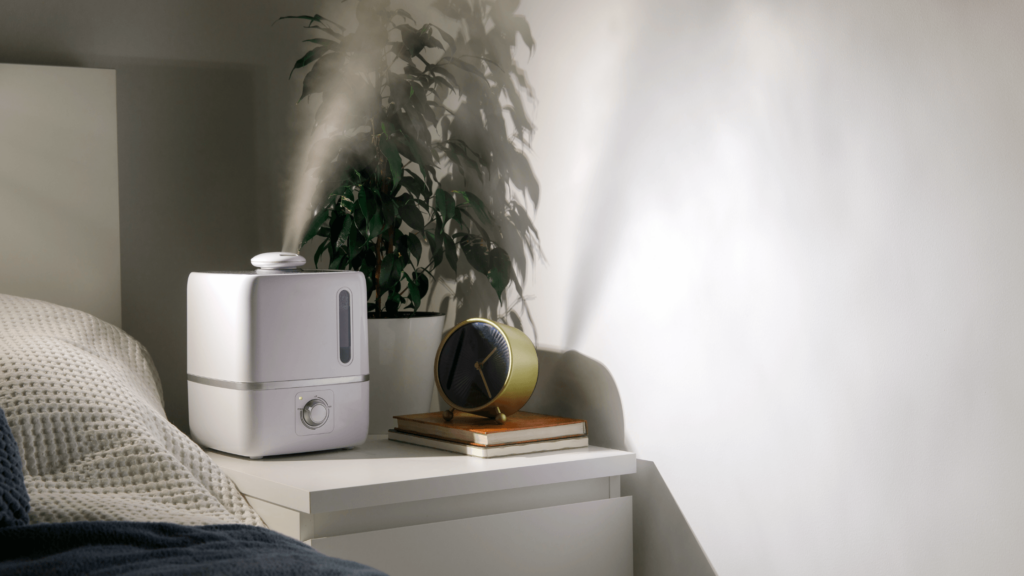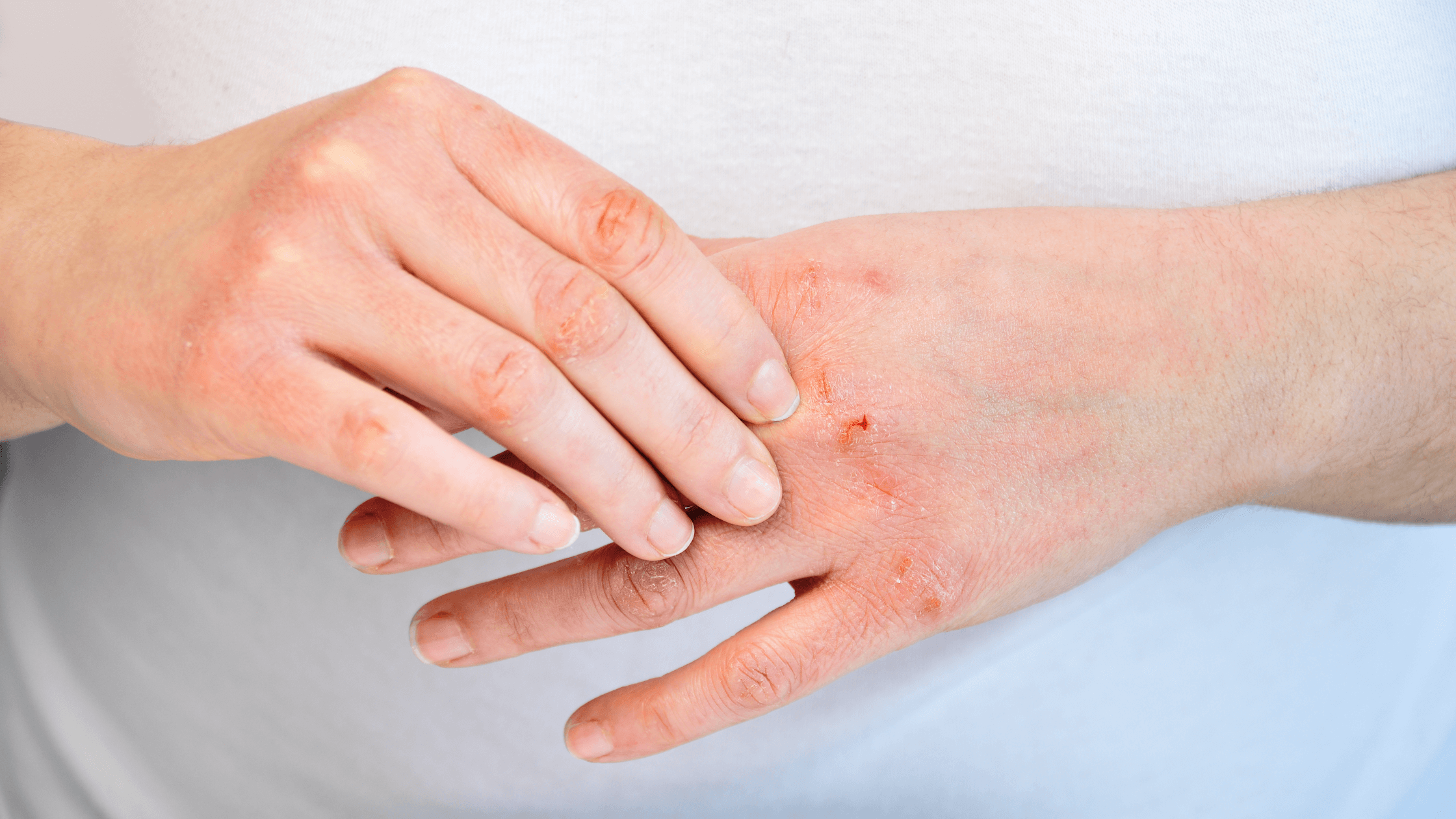Working outside in inclement weather can be hard on your body and skin—especially in areas exposed to the elements. Your skin is your body’s biggest organ, and caring for it means caring for your overall health. Pay attention to dry skin signs like itching, flakiness, and irritation, and try things like humidifiers, moisturizers, and proper face coverings to beat the itch. Cold weather doesn’t have to get to you every season; take precautions to prevent skin damage.
Dry skin in the winter is normal
When the weather gets cold, humidity in the air drops. This causes the moisture in your skin to evaporate more quickly, leaving it feeling dry. But it’s not only the outdoor air that affects your skin. Indoor heaters can also dry out the air and strip your skin of its natural oils.
But here’s the skin—dry skin doesn’t pick and choose who it affects; it’s completely normal to experience weather-related skin changes. And although you could just tough it out until the warm weather comes back, you could also do many simple things to help yourself throughout the season.
Signs of dry winter skin
If you’re not sure if your skin is dry this season, consider the following signs or symptoms:
- Itchy skin
- Skin that feels and looks rough to the touch
- Feeling tightness or stiffness in the skin
- Light to moderate peeling or scaling
- Cracks and fine lines in the skin
- A dry “riverbed” look to the skin on your legs
- Inflammation
- Deep cracks in the skin that may bleed
If your itchiness and cracks escalate to pain and signs of infection, it may be time to see a healthcare professional. That said, most of these symptoms can be remedied with easy, at-home treatments.
8 top tips to save your skin from the wrath of winter
1. Moisturize after washing

Maybe the most obvious way to get more moisture back into your skin is to moisturize. But when you do it might make all the difference. When you moisturize right after washing, and your skin is still slightly damp, it is primed to absorb and retain maximum moisture from your moisturizer. This essentially seals in the hydration and combats dryness in the long term.
We recommend using a cream or balm-based product, which is more moisturizing than a lotion.
Moisturizers rich with tallow are especially effective as they comprise similar oils our skin naturally produces. Products like Ancestral Cosmetics or Amallow are great starting places, but you can also make your own from a high-quality tallow or suet—that way, you know exactly what’s in it.
2. Apply sunscreen (even if it’s not hot)
During winter, the Earth’s ozone layer is at its thinnest, which allows UV rays to reach the Earth faster and more intensely. Working outside in the elements makes you even more susceptible to burning.
Snow also reflects the harshness of UV rays and can quickly cause skin damage, so it’s important to always protect your skin. The minimum SPF we’d recommend for the face and body is SPF 30, and if you want convenience, you can look for products suited for the face and body, like the Neutrogena Ultra Sheer Dry Touch sunscreen.
3. Use a humidifier

The heaters we use indoors over the winter tend to suck the moisture out of the air, so using a humidifier will add some moisture back. Humidifiers can help relieve dry, itchy, cracked skin but can also help with respiratory and sinus issues during cold and flu season.
When shopping around for a humidifier, make sure you’re purchasing one well-suited to the size of the room where you’ll place it. The product page should indicate the square footage that a particular model can support.
4. Stay hydrated
Protecting your skin starts internally. Drinking enough water helps your body combat dry skin and relieve any itchiness or flaking. Proper hydration also restores the elasticity of your outer layer of skin, which helps with skin tightness and the risks of cracking.
5. Double-check your diet
A proper diet may also aid in dry and itchy skin relief. Foods rich in specific vitamins and minerals are crucial for overall skin health.
- Vitamin A: Helps reduce flaking and replenishes skin elasticity
- Vitamin D: Helps strengthen your skin barrier, prevent peeling, and reduce the water loss
- Omega-3s: Help with dry skin by improving skin barrier function, locking in moisture, and keeping out irritants
Also, be mindful that alcohol, tobacco, and foods high in processed sugar can worsen your dry skin.
6. Avoid hot water

While it’s tempting to take a scalding hot shower after a freezing cold day outside, it’s likely making your dry skin even worse. Hot water strips the skin of its natural oils, and the low moisture in the air makes it challenging for your skin to catch up and replenish. Hot water also compromises your skin’s barrier, leading to more sensitivity to the elements.
Go with warm water when you can, and moisturize right after your shower to protect your skin barrier.
7. Don’t forget to protect your lips
Your lips get especially dry because they lack oil glands and cannot moisturize themselves. That’s why it’s easy to have chapped lips at any time of year, especially during the winter.
You can use almost any lip balm for dryness, cracks, and tightness, but we like Aquafor. It’s paraben-free and fragrance-free, and widely-recommended by Dermatologists. Apply it at night and routinely throughout the day to protect your lips. Similarly, tallow-based balms work exceptionally well.
8. Cover your face
Architects, engineers, and construction workers often have to brave the elements, and protecting sensitive skin on the face is essential. Luckily you can find products that protect your face, keep you warm, and can be worn with your PPE.
Neck gaiters are thick but still breathable for working hard on the job site, and these face coverings from Ergodyne are made explicitly with tradespeople in mind. They come in a neck gaiter style and balaclava options for optimal protection against wind, snow, and sun.
Bottom line
The physical labor in the trades is tough enough, and you don’t need dry, cracked winter skin to make it even tougher. Look out for signs of redness, flakiness, itchiness, and cracked skin, and try out a thick moisturizer, a humidifier, lip balm, and face covering to protect yourself.
Depending on where you are, the winter could be a long season, but it doesn’t have to be a long season of inflammation and pain for your skin.
For more on health, wellness, and everything in the AEC space, subscribe to the newsletter.



1 comment